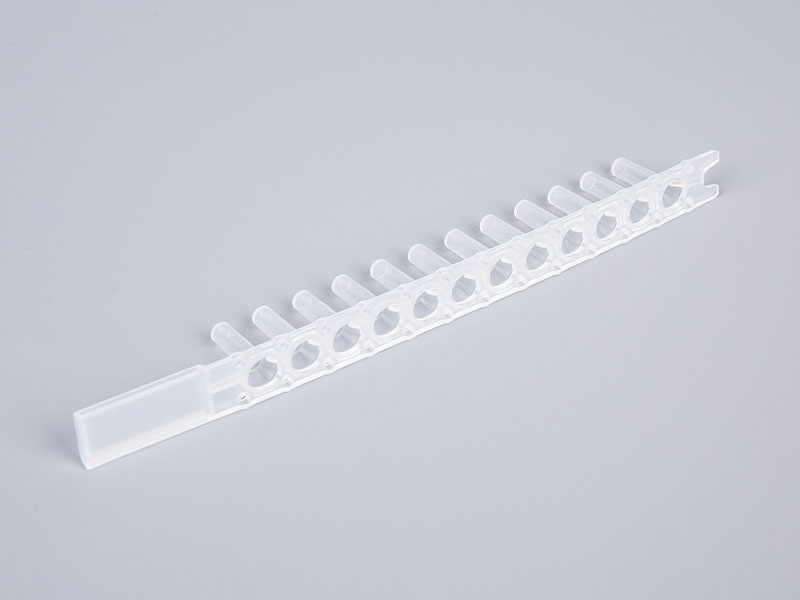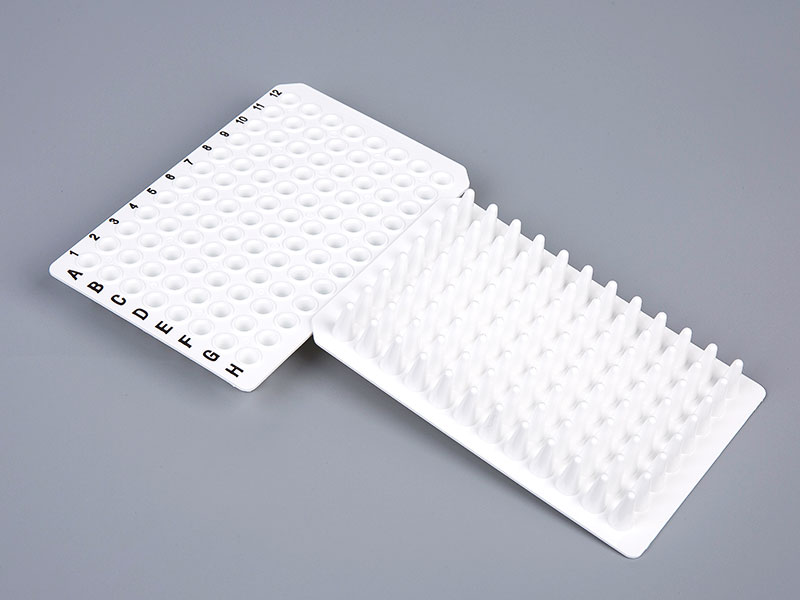How has the development of magnetic sleeves impacted the field of molecular biology?
The development of magnetic sleeves has profoundly impacted the field of molecular biology, revolutionizing nucleic acid extraction processes and thereby enhancing the overall efficiency, accuracy, and scalability of molecular biology research and applications. Magnetic sleeves, such as those developed by Bioland, are meticulously designed to integrate seamlessly with deep well plates, particularly the 2.0ml/2.2ml varieties, and are available in multiple sizes and configurations. This adaptability and precision have made them indispensable tools in laboratories worldwide, contributing significantly to advancements in genomic research, clinical diagnostics, and personalized medicine.
One of the primary ways magnetic sleeves have transformed molecular biology is through the enhancement of nucleic acid extraction processes. By ensuring efficient magnetic bead-based separation, magnetic sleeves facilitate the purification of nucleic acids with high purity and yield. This efficiency not only reduces the time and labor involved in sample preparation but also ensures consistency and reproducibility in experimental results. In the realm of high-throughput sequencing, where the quality of nucleic acid samples is paramount, magnetic sleeves play a crucial role by delivering clean and concentrated samples, thereby enabling accurate and reliable sequencing outcomes. Similarly, in gene expression studies, the ability to obtain high-quality RNA and DNA using magnetic sleeves is essential for elucidating gene function and regulation.
Moreover, magnetic sleeves offer significant advantages in terms of scalability and flexibility. Available in various cell sizes and styles, including standard, large capacity, and specialized configurations, these sleeves can be adapted to different experimental setups and scales, from small-scale research to large-scale screening. Their compatibility with automated liquid handling systems further enhances laboratory throughput and reduces human error, making high-efficiency nucleic acid extraction accessible even in high-demand environments. This scalability and adaptability are particularly beneficial in clinical and diagnostic applications, where the rapid and reliable extraction of nucleic acids from patient samples is critical for the detection of pathogens, genetic disorders, and other medical conditions. The precision and reliability of magnetic sleeves thus support the growing field of personalized medicine, where individual genetic information is used to tailor treatments to patients' unique genetic profiles.

Another significant impact of magnetic sleeves in molecular biology is the reduction of contamination risks and sample loss. The design of magnetic sleeves minimizes the risk of sample contamination, a common concern in molecular biology experiments, particularly in sensitive applications such as forensic analysis and clinical diagnostics. Additionally, magnetic sleeves ensure that minimal sample is lost during the extraction process, which is crucial when working with limited or precious samples. This reliability and precision in handling samples contribute to the overall integrity and accuracy of experimental results.
From a commercial perspective, magnetic sleeves also offer cost-effectiveness and accessibility. By requiring fewer reagents compared to traditional extraction methods, magnetic sleeves reduce overall operational costs, making high-quality nucleic acid extraction more economically feasible. This cost-effectiveness, coupled with the broad accessibility of magnetic sleeves, has democratized advanced nucleic acid extraction technologies, allowing a wider range of laboratories, including those in resource-limited settings, to perform cutting-edge molecular biology research.
The development of magnetic sleeves has had a transformative impact on the field of molecular biology. By enhancing the efficiency, accuracy, and scalability of nucleic acid extraction processes, magnetic sleeves have advanced genomic research, clinical diagnostics, and personalized medicine. Their ability to reduce contamination risks, minimize sample loss, and lower operational costs has made high-quality nucleic acid extraction accessible to a broader range of laboratories. As indispensable tools in modern molecular biology, magnetic sleeves continue to drive scientific innovation and improve research capabilities, underscoring their critical role in the ongoing evolution of the field.
For more information, please call us at +86-0571-87993109 or email us at hzbioland@126.com.
Aseptic vacuum filters, like Bioland™ disposable vacuum filtration units, are designed for high-effi...
Whether used in the food hygiene industry, water monitoring, or research labs, selecting the right m...
Narrow-mouth reagent bottles are essential tools in laboratories, offering precise storage solutions...
In laboratory diagnostics, particularly in PCR (Polymerase Chain Reaction) testing, efficiency is pa...
When working with the Bioland™ Cell Shaker, one of the most crucial factors in ensuring successful c...
Polymerase chain reaction (PCR) is one of the most vital techniques in molecular biology, allowing s...

 中文简体
中文简体 English
English Español
Español русский
русский











